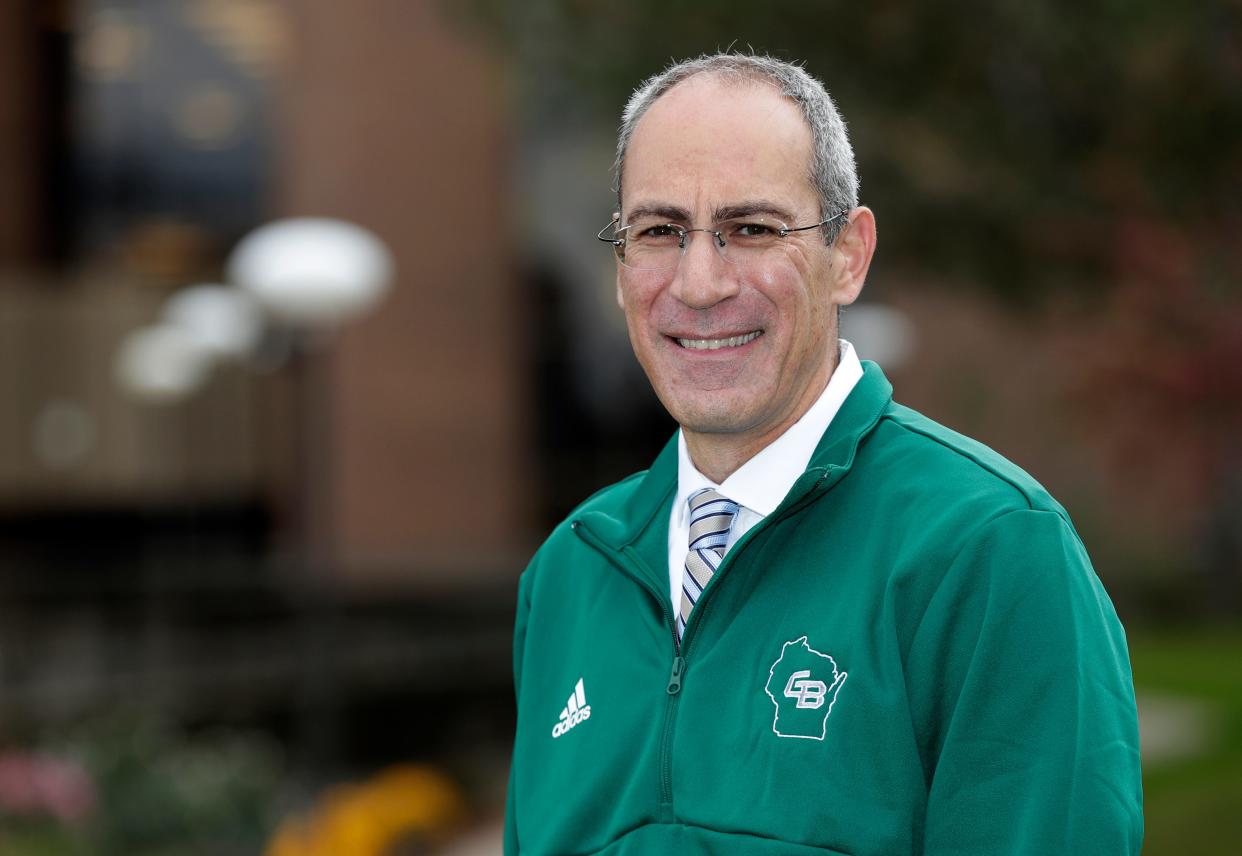Financial consultant report tells UWGB leaders to 'act with urgency.' Here's why
GREEN BAY — In a third party financial report, consultants are asking University of Wisconsin-Green Bay leaders “to act with urgency” to steer the school to financial stability.
The UW System hired consulting firm Deloitte to assess the financial landscapes of the system’s campuses. UWGB’s report, released Thursday, paints a picture of a university that won’t be able to support itself by 2027 if changes aren’t made.
UWGB Chancellor Michael Alexander is pushing back on the report’s findings, saying it took the university’s worst financial year in the last six and makes projections as if the school hasn’t made financial adjustments.
What is in the UWGB report?
Deloitte’s report shows a deficit of $7.2 million for fiscal year 2023 that’s eroding nearly 50% of UWGB’s tuition fund reserves. Headwinds facing higher education, like a shrinking traditional college applicant pool, could result in UWGB depleting its tuition fund balance by 2027.
Expenses are outpacing revenue, leaving the university with the need to right-size its operations, the report said.
More: The future of some UW campuses is at risk without major changes, new financial reports show
The report applauded the university’s ability to attract students through high school programs and continuing adult education, allowing the school to grow enrollment. UWGB has seen enrollment growth in recent years, unlike other UW campuses.
From fall 2011 to 2023, UWGB’s main campus full-time student enrollment increased 11%. But during that same time period, the university’s branch campuses saw steep declines.
The Manitowoc, Marinette and Sheboygan campus enrollments have declined by 46%, 51% and 47%, respectively. Marinette’s loss of students has led to the campus no longer doing in-person instruction next fall.
Despite growth at the main campus, student retention is a threat for UWGB, according to the report. The university’s one-year retention average for full-time freshmen was 70% for fall 2022, six points below the UW System average.
UWGB, like the UW System overall, is seeing a decline in traditional undergraduate students. While the school is diversifying the types of students attending, like dual enrollment high schoolers, that presents different revenue streams. A high school student’s tuition is less than half that of a traditional full-time undergraduate — but it’s also cheaper to educate those students.
The report suggested UWGB evaluate its academic programs to better align with student demands, which it’s already in the process of doing.

What does Chancellor Michael Alexander say?
In a message to UWGB staff Thursday, Alexander said the report looked at the university’s “worst year by far of the last 6 years” and fails to account for planned reductions. The report’s projections also don’t factor in revenue from the continuing education division, Alexander said.
UWGB’s own budget projections put its fund balance hovering around $8 million for the next few years, growing to $8.8 million by 2028.
More: Is UWGB headed toward the same fate as UW-Oshkosh, UW-Parkside and others amid state funding cuts?
The university purposefully spent some of its fund balance last year to support its mission, Alexander said.
“We pledged to end our ‘structural deficit’ by FY25 and I believe that we have done that with the understanding that changes to projected enrollment can always cause us to have to adjust,” he said in his message to staff.
The university is looking into strategic investments such as the Phoenix Innovation Park, a collaborative research hub that has the goal of doubling UWGB's enrollment. It’s also pushing to grow its dual enrollment and continuing education programs.
What cuts has UWGB already made?
UWGB laid off nine staff members last fall, saving $322,114 in recurring costs. The cuts targeted libraries and the Rising Phoenix program, which helps high schoolers get dual credit at the university.
In-person library services at the Manitowoc and Marinette campuses stopped in December, and the Sheboygan campus' library services are significantly decreasing their hours this semester.
The university is moving the library research and support services online for those campuses and repurposing the library spaces.
Announced last fall, university administrators who make more than $100,000 were taking a furlough, saving $141,602, and the school is cutting one-time spending by $3.9 million across all areas of the school. Staff and faculty travel is also being restricted to what's deemed essential.
UWGB is also cutting majors in economics, environmental policy and theater and dance. It's also looking to discontinue minors in international environmental studies, geography and physics.
Danielle DuClos is a Report for America corps member who covers K-12 education for the Green Bay Press-Gazette. Contact her at dduclos@gannett.com. Follow on Twitter @danielle_duclos. You can directly support her work with a tax-deductible donation at GreenBayPressGazette.com/RFA or by check made out to The GroundTruth Project with subject line Report for America Green Bay Press Gazette Campaign. Address: The GroundTruth Project, Lockbox Services, 9450 SW Gemini Drive, PMB 46837, Beaverton, Oregon 97008-7105.
This article originally appeared on Green Bay Press-Gazette: Financial report advises UW-Green Bay leaders to 'act with urgency'
